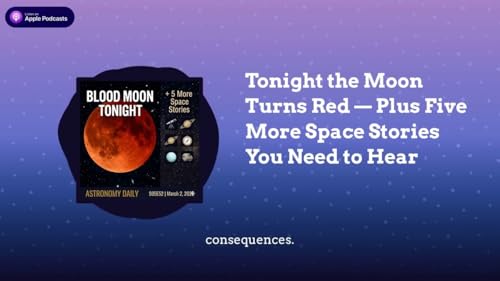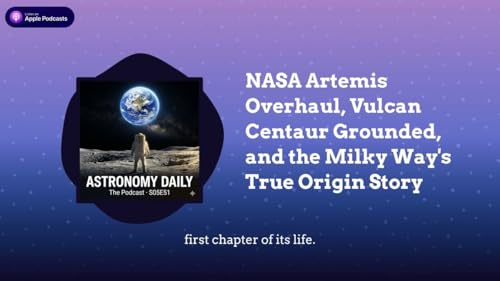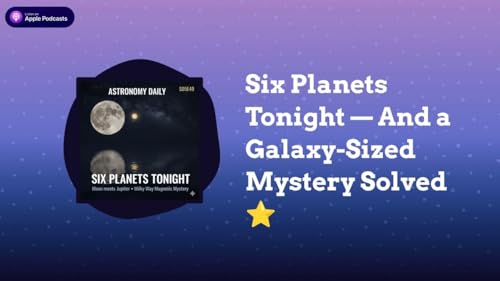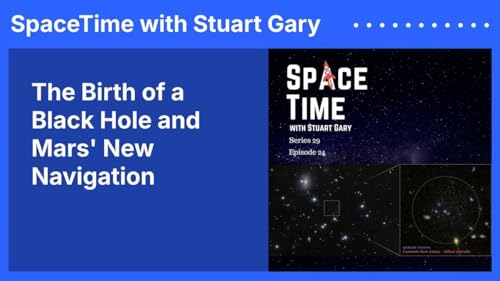Sponsor Link:
This episode of SpaceTime is brought to with the kind support of Squarespace . Bring your stories to life with Squarespace, the easiest way to create an exceptional website, blog, portfolio, or online store. To check out our special offers, vist squarespace.com/spacetime (https://squarespace.com/spacetime) and us the promo code SPACETIME.
SpaceTime with Stuart Gary Gary - Series 29 Episode 24
In this episode of SpaceTime , we uncover astonishing discoveries about the birth of black holes, a revolutionary Martian navigation system, and the arrival of NASA's SpaceX Crew 12 at the International Space Station.
The Birth of a Black Hole: A New Perspective
Astronomers have made a groundbreaking discovery by observing a star in the Andromeda Galaxy collapsing into a black hole without the expected supernova explosion. The star, catalogued as M31 2014 DS1, was seen glowing brightly in infrared light before fading away, leaving behind a dust shell. This event, which had been anticipated for decades, suggests that massive stars may collapse directly into black holes, challenging long-held assumptions about stellar deaths. The findings, published in the journal Science, provide new insights into the processes that govern black hole formation and indicate that such direct collapses may be more common than previously thought.
NASA's New Martian Navigation System
NASA has introduced an innovative navigation system for its Perseverance rover, allowing it to determine its location on Mars with remarkable precision—within 25 centimeters. The new technology, called Mars Global Localization, enables the rover to autonomously compare panoramic images with orbital terrain maps, eliminating the need for Earth-based assistance. This advancement significantly enhances the rover's ability to explore the Martian surface independently, paving the way for more extensive scientific investigations.
SpaceX Crew 12 Arrives at the ISS
NASA's SpaceX Crew 12 has successfully docked with the International Space Station, restoring the crew complement to seven members. The mission includes a diverse crew of two Americans, a Russian, and a French astronaut, who will conduct approximately 250 scientific experiments in orbit. Additionally, NASA has approved a sixth private mission to the ISS, slated for next year, which aims to support new research initiatives and infrastructure development for future human spaceflight missions.
www.spacetimewithstuartgary.com (https://www.spacetimewithstuartgary.com/)
✍️ Episode References
Journal Science, NASA Reports
Become a supporter of this podcast: https://www.spreaker.com/podcast/spacetime-with-stuart-gary--2458531/support (https://www.spreaker.com/podcast/spacetime-with-stuart-gary--2458531/support?utm_source=rss&utm_medium=rss&utm_campaign=rss) .
Episode link: https://play.headliner.app/episode/31877069?utm_source=youtube
 17 mins
17 mins Mar 2 202631 mins
Mar 2 202631 mins 22 mins
22 mins Feb 27 202622 mins
Feb 27 202622 mins 38 mins
38 mins Feb 27 202633 mins
Feb 27 202633 mins 13 mins
13 mins 23 mins
23 mins
